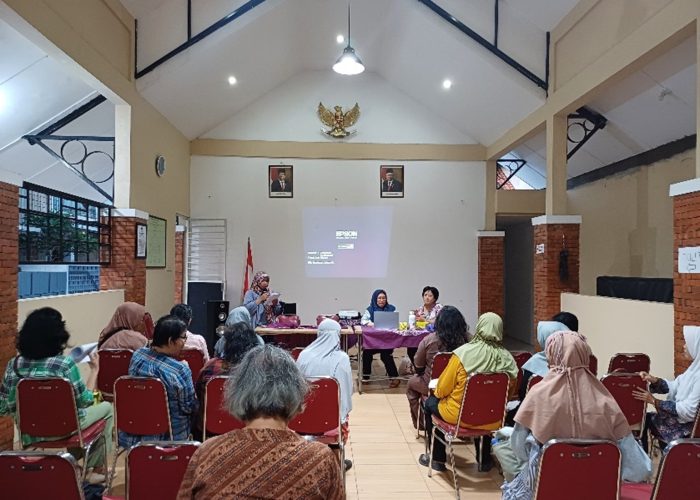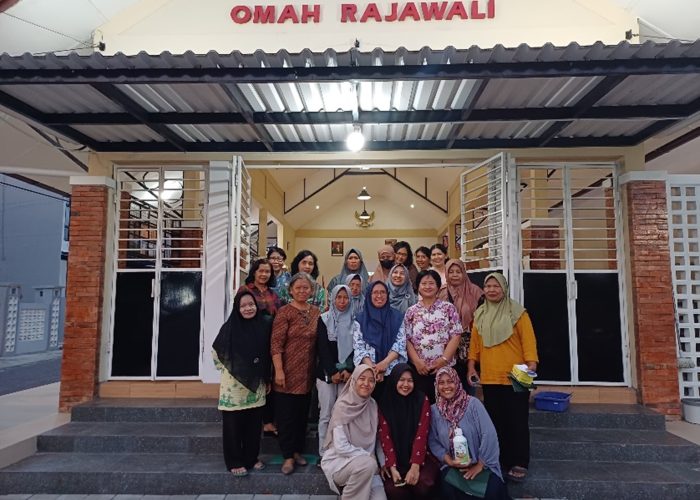On Saturday, October 12, 2024, The Faculty of Biology organized a seminar on Environmentally Friendly Organic Waste Management with Catalytic Microbes and Biostimulant Applications in Agriculture and Horticulture at the Manukan Hamlet Meeting Hall, Condong Catur Village, Sleman. This seminar was part of the 2024 Community Service Program under the Merdeka Belajar Kampus Merdeka (MBKM) led by Prof. Dr. Endah Retnaningrum, M. Eng., with three student members: Saffanah, Fadhila Nujannah, and Sekar Alya Maharani. The event was attended by 30 members of the Women Farmers Group (KWT) from Manukan Hamlet.
The event consisted of two presentation sessions and a discussion session. The first presentation was delivered by Prof. Dr. Endah Retnaningrum, M. Eng. on Environmentally Friendly Organic Waste Management with Catalytic Microbes. She highlighted organic waste commonly disposed of through landfilling at Final Processing Sites (TPA), which still contributes to water, soil, and air pollution. Nevertheless, organic waste can be effectively processed into a more environmentally sustainable form, utilizing catalytic microbes found in the intestines of Black Soldier Fly (BSF) larvae. The organic waste management process involves sorting organic waste, adjusting the waste particle size, and maintaining BSF larvae within the organic waste until complete decomposition is achieved by the catalytic microbes in BSF larvae’s intestines.
The second presentation focused on Biostimulant Applications in Agriculture and Horticulture by Prof. Dr. Kumala Dewi, MSc.St. Biostimulants contain various supplements such as nutrients, amino acids, plant or seaweed extracts, humic acid, chitosan, and beneficial microbes (Azotobacter spp., mycorrhizal fungi, Rhizobium spp., and Azospirillum spp.). These biostimulants benefit agricultural and horticultural practices as they stimulate nutrient absorption by plants, enhance crop quality and yield, boost the activity of rhizosphere microbes and enzymes, increase hormone availability, and promote photosynthesis. Biostimulants can reduce the use of chemical fertilizers, lower greenhouse gas emissions, support green agriculture, increase community income, and contribute to the national food security program.
Following the presentations, there was an engaging discussion and Q&A session with enthusiastic participants, and the event concluded with a group photo. This seminar aligns with the Sustainable Development Goals (SDGs), especially SDGs No.6 on clean water and sanitation, SDGs No. 11 on sustainable cities and communities, SDGs No. 12 on responsible consumption and production, and SDGs No. 15 on life on land.



